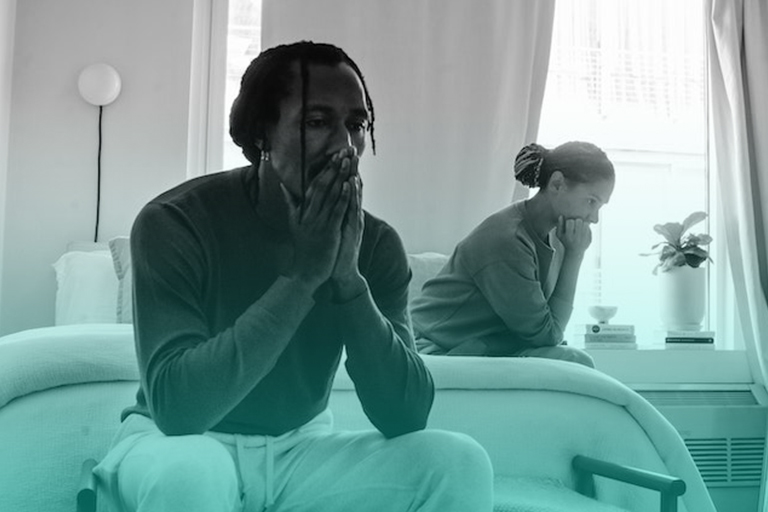Recognizing the Signs of Mild Depression: Let’s Discover the Symptoms
Depression is a common mental health disorder that affects millions of people worldwide. While major depression is a more severe form of the disorder, milder forms of depression, such as mild depression, can also have a significant impact on an individual's life.
What is Mild Depression and What are the Symptoms?
Mild depression, also known as dysthymia, is a type of depression that is less severe than major depression. It can cause feelings of sadness, hopelessness, and low self-esteem, and it can affect a person's ability to function normally in their daily life. Some of the symptoms of mild depression include:
- A persistent feeling of sadness or emptiness
- Loss of interest in activities that were once enjoyable
- Difficulty concentrating or making decisions
- Fatigue or lack of energy
- Changes in appetite or weight
- Sleep disturbances, such as insomnia or oversleeping
- Feelings of worthlessness or excessive guilt
- Physical symptoms such as headaches or digestive problems
Understanding the Causes of Mild Depression
The causes of mild depression are not fully understood, but it is believed to be a combination of genetic, environmental, and psychological factors. People who have a family history of depression, have experienced
trauma or significant life changes, or have a history of substance abuse are at a higher risk of developing mild depression.
Additionally, imbalances in brain chemicals such as serotonin and norepinephrine can contribute to the development of mild depression.
The Difference Between Mild and Major Depression
While both mild and major depression are forms of depression, there are some key differences between the two.
Major depression is a more severe form of the disorder that can cause significant impairment in a person's daily life. Symptoms of major depression may include suicidal thoughts, extreme weight loss or gain, and a loss of interest in all activities.
On the other side, mild depression is characterized by less severe symptoms that may not interfere with a person's ability to function normally.
Recognizing the Signs of Mild Depression
Recognizing the signs of mild depression can be challenging, as the symptoms may be subtle and not immediately apparent. However, some common signs of mild depression include feelings of sadness or hopelessness that persist for more than two weeks, a loss of interest in activities that were once enjoyable, and changes in appetite or sleep patterns. If you or someone you know is experiencing these symptoms, it may be worth taking a test for mild depression.
What Does Mild Depression Look Like?
Self-care is an essential component of managing
post-argument anxiety. When we take care of ourselves physically, emotionally, and mentally, we are better able to cope with stress and anxiety. Self-care practices can include things like getting enough sleep, eating a healthy diet, exercising regularly, and engaging in activities that bring us joy and relaxation.
It is also important to set healthy boundaries in our relationships. This means being clear about our needs and limits and communicating them respectfully to our partners. When we have clear boundaries, we are less likely to feel resentful or overwhelmed, which can contribute to post-argument anxiety.
Coping with Mild Depression
Coping with mild depression can be challenging, but there are many things that can help. Engaging in regular exercise, getting enough sleep, and eating a healthy, balanced diet can all help improve mood and reduce symptoms of depression. Additionally, practicing self-care activities such as meditation, and yoga, and spending time outdoors can also be helpful.
How to Help Someone with Mild Depression
If you know someone who is experiencing mild depression, it can be challenging to know how to help. One of the most important things you can do is to offer support and encouragement and let them know that you are there for them. Encouraging them to seek professional help if necessary, and offering to help them find a therapist can also be helpful.
Treatment Options for Mild Depression
There are many treatment options available for mild depression. Some people may benefit from talk therapy, such as cognitive-behavioral therapy or interpersonal therapy, while others may benefit from medications such as antidepressants. Additionally, lifestyle changes such as regular exercise, a healthy diet, and stress reduction techniques can also be effective in treating mild depression.
When to Seek Professional Help
If you or someone you know is experiencing symptoms of depression, it is important to seek professional help. While mild depression may not be as severe as major depression, it can still have a significant impact on a person's life.
A mental health professional can help identify the signs of depression, provide support and guidance, and develop a treatment plan that is tailored to the individual's needs.
Conclusion
Mild depression is a common mental health disorder that can have a significant impact on an individual's life. Recognizing the signs of mild depression and seeking professional help if necessary can help reduce symptoms and improve overall well-being. If you or someone you know is experiencing symptoms of depression, taking a test for mild depression and seeking professional help can be an important first step toward recovery. Remember, with the right treatment and support, it is possible to overcome depression and live a fulfilling, happy life.
If you or someone you know is experiencing symptoms of mild depression, taking a diagnostic assessment for mild depression can be the first step toward identifying and treating the symptoms.
Seeking professional help can also be crucial in managing the disorder and improving overall well-being. Don't hesitate to reach out for help if you need it.



 Let me support you in finding what’s going to keep you going on your journey!
Let me support you in finding what’s going to keep you going on your journey!